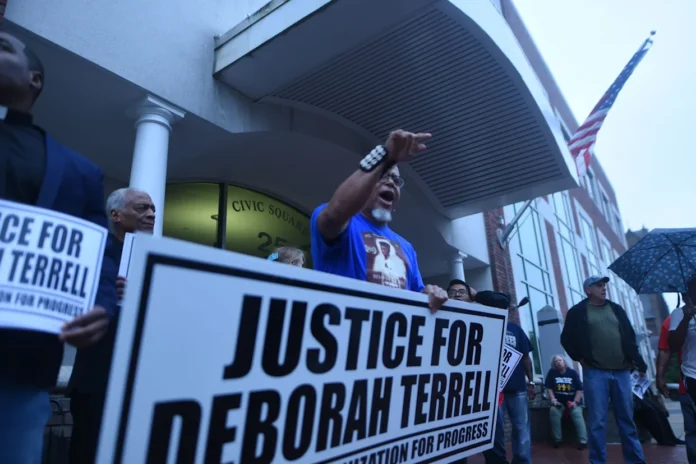The fatal shooting of 68-year-old Deborah Terrell by New Brunswick police on August 8, 2025, has ignited a statewide conversation about how law enforcement responds to mental health emergencies. Terrell’s family and local advocates argue that if trained mental health professionals had been the primary responders, the tragic incident could have been de-escalated without loss of life.
On the morning of August 8, police were called multiple times to Terrell’s senior apartment building after residents reported disturbing behavior and her wielding a kitchen knife. Officers initially attempted to engage her peacefully, but when Terrell emerged from her apartment holding the knife, police deployed pepper spray and a taser. Despite these efforts, she continued advancing, and one officer fatally shot her. Terrell’s family noted that she had a long history of schizophrenia and that responding officers were not fully equipped to manage her crisis. In September 2025, the New Jersey Attorney General’s office released bodycam footage and 911 calls from the incident in line with state transparency policies.
The shooting has prompted widespread calls for alternative, community-based responses to mental health crises. Advocates and residents argue that law enforcement should not be the default first responders. Organizations such as Equal Justice USA stress that police involvement in these situations can escalate conflicts, sometimes with deadly results, and often funnels individuals into the criminal justice system rather than providing the care they need.
New Jersey currently operates the “Arrive Together” program in several municipalities, including New Brunswick. This initiative pairs a mental health professional with a police officer for crisis calls. While supporters of the program note it has helped in some situations, critics say it falls short because law enforcement is still directly involved. Advocates are instead calling for fully community-led programs similar to pilot initiatives in Paterson, which allow trained civilian teams to respond independently to mental health emergencies.
Public outrage over Terrell’s death has been immediate and sustained. Hundreds of protesters gathered at a city council meeting on August 21, with family members voicing concern about the handling of her mental illness and demanding accountability. Demonstrators later blocked Route 18 on September 8, chanting for justice and systemic change. The advocacy movement emphasizes that Terrell might still be alive if trained mental health professionals had been the first point of contact rather than police officers.
Legislative attention is also growing. Bills currently under consideration would require the Attorney General to review and potentially revise statewide police deadly force policies and authorize civilian review boards to provide oversight of law enforcement actions. Advocates point to the 2023 police killing of Najee Seabrooks in Paterson as a cautionary example, highlighting how the absence of community-led crisis responders can lead to preventable fatalities. That incident ultimately prompted the Seabrooks-Washington Community-Led Crisis Response Act, which increased funding for non-law enforcement emergency teams.
In the wake of Terrell’s death, New Brunswick’s community members and advocacy groups are pressing for a reimagined approach to public safety—one in which trained mental health responders take the lead and police involvement is minimized unless absolutely necessary. As the debate continues, the tragedy has spurred both local and statewide conversations about accountability, safety, and the urgent need for programs that treat mental health crises with expertise, compassion, and care.
For more on law enforcement, public safety, and legal reform in New Jersey, visit Explore New Jersey Law & Order. For Health & Wellness Information, click here.












